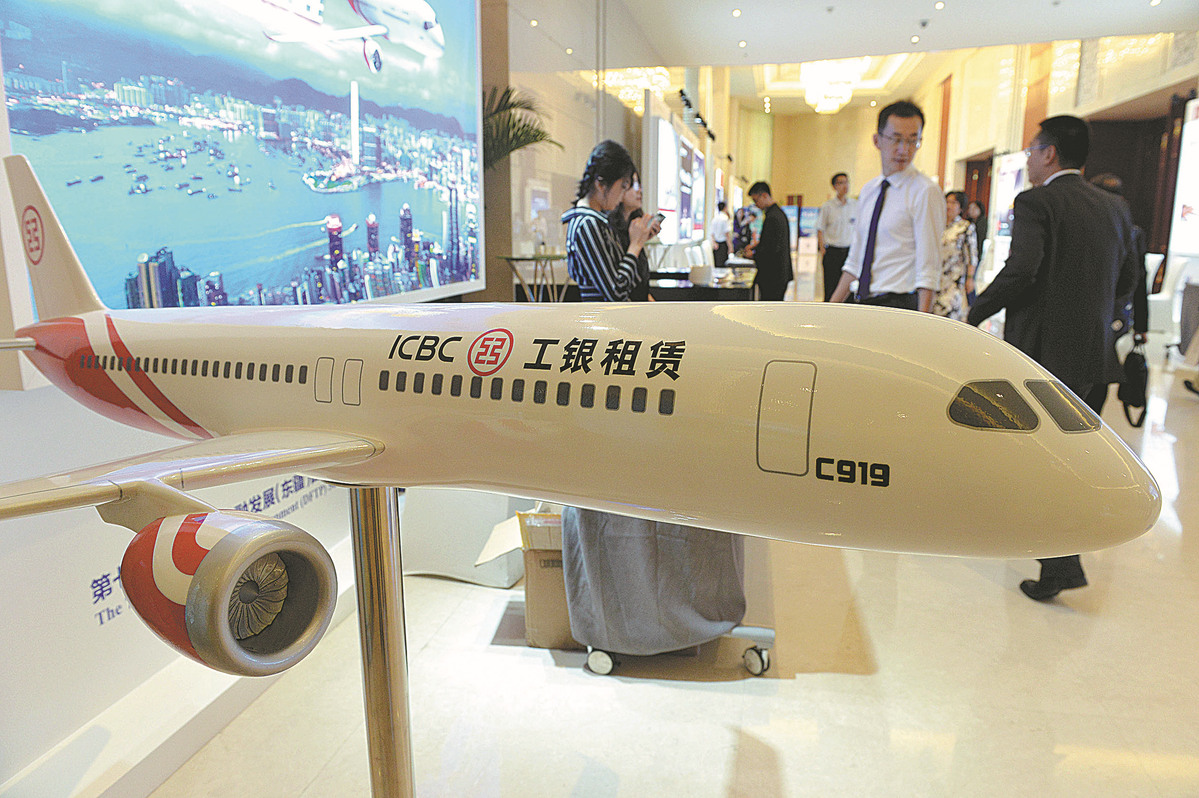Tianjin zone marks leasing milestone


Tianjin Dongjiang Comprehensive Bonded Zone is set to deliver its 2,000th aircraft on Friday via financial leasing tools since the first such plane was leased there in 2009.
The zone also inked partnership agreements with financial leasing and client companies on Thursday, which are expected to see greater portfolios for its financial leasing products and a major surge in its financial leasing assets.
The zone did not release the total value of the latest agreements.
The area-the largest aircraft financial leasing area for jets and planes in China and the second-largest of its kind in the world in terms of overall asset volume following Ireland-has seen its assets expand from aircraft to vessels and ocean oil platforms, topping 1 trillion yuan ($147.8 billion) to date.
Yang Liu, director of the administrative committee of the zone, said: "Dongjiang, which saw its tax revenue generated from the financial leasing sector rise 76.2-fold since 2012 to 18.4 billion yuan in 2021, is a miniature representative of the recent dynamic decade of China's fabulous economic transformation and its escalating economic reforms."
It has released an ambitious target in which it aims to become the world's leading aircraft financial leasing center, international vessel leasing center as well as international export leasing center by 2025.
In the near future, the zone is expected to diversify its business focus in financial leasing, cashing in more on the bonanza in vessel and ocean oil platforms, Yang said.
Statistics indicated that in 2021 and the first half of this year, a total of 107 and 76 vessels were leased out in the zone, up 180 percent and 68.8 percent, respectively.
The zone expects that by 2025, total vessels are expected to hit 1,000, of which the total asset will be equivalent to $40 billion.
Apart from vessels, the ocean oil market has seen sluggish growth amid the ongoing COVID-19 pandemic, but many oil platform producers expect Dongjiang to help break the bottleneck in funds via financial leasing.
In recent years, Dongjiang has completed the leasing for 60 such products each with assets worth 6-7 billion yuan, said Yu Chaoliang, vice-director of the financial leasing bureau of the zone.
The financial leasing tools are expected to quench the thirst of companies, soothing their worries about buying products like vessels or oil drilling platforms.
Apart from benefits for companies, Li Peng, vice-general manager of ICBC Financial Leasing Co Ltd, said, "Dongjiang's financial leasing tools benefit end consumers in their spending as prices of airline tickets are dropping thanks to airline companies' reduced costs via financial leasing."
Eyeing future growth models, Yu Ying, partner, head of government and public sector at KPMG, said: "The international shipping market is confronted with uncertainties with slower efficiency at ports, so Dongjiang should take cautious steps. However, the first quarter this year also saw signs of recovery. Dongjiang is advised to make active efforts to collaborate with shipbuilders for its long-term benefit.



































